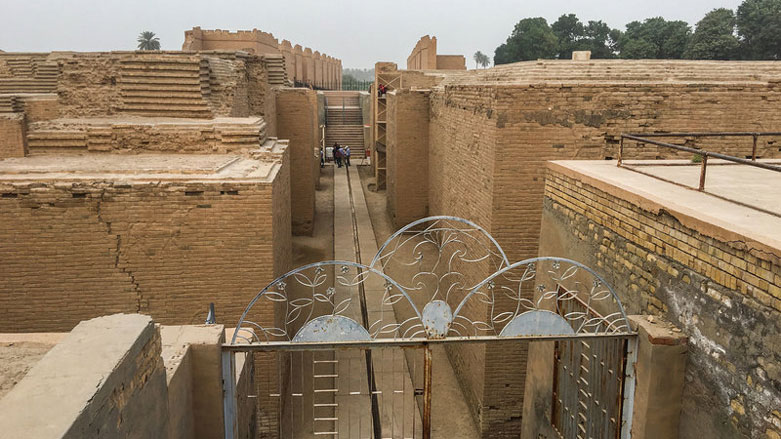UNESCO designates ancient Babylon a World Heritage site

ERBIL (Kurdistan 24) – The United Nations Educational, Scientific and Cultural Organization (UNESCO) added the ancient city of Babylon in what is now modern-day Iraq to its official list of World Heritage sites on Friday.
“The property includes the ruins of the city which, between 626 and 539 BCE, was the capital of the Neo-Babylonian Empire,” said a UNESCO statement. “It includes villages and agricultural areas surrounding the ancient city. Its remains, outer and inner-city walls, gates, palaces and temples, are a unique testimony to one of the most influential empires of the ancient world.”
The designation provides some protection under international treaties and sets into motion efforts to conserve the site, located outside the city of Hilla, 85 kilometers (53 miles) south of Baghdad.
Beginning in the late 1970s, Saddam Hussein ordered the rebuilding of some of the city in a fashion seen as haphazard by those observing international archaeological standards.
After the 2003 toppling of the former Iraqi government in 2003, the US military set up a nearby base where American and Polish troops were stationed. Archeologists worldwide decried the resulting severe damage caused by heavy military vehicles, construction that destroyed multiple areas and degraded the site’s integrity by shipping in and out tons of gravel and dirt, and direct looting by military personnel and others.

Despite the cultural prominence of the 4,000 year-old site and the fact that its famed hanging gardens are considered one of the seven wonders of the ancient world, it made the list only after years of lobbying by Iraqi officials and is the sixth national site to have been recognized in this way.
Iraqi President Barham Salih said the city Babylon was returned to its “rightful place” in history after years of neglect by previous leaders.
Prime Minister Adil Abdul-Mahdi said, “Mesopotamia is truly the pillar of humanity’s memory and the cradle of civilization in recorded history.”
Friday’s UNESCO statement continued, “Seat of successive empires, under rulers such as Hammurabi and Nebuchadnezzar, Babylon represents the expression of the creativity of the Neo-Babylonian Empire at its height.”
“The city’s association with one of the seven wonders of the ancient world—the Hanging Gardens—has also inspired artistic, popular and religious culture on a global scale.”
